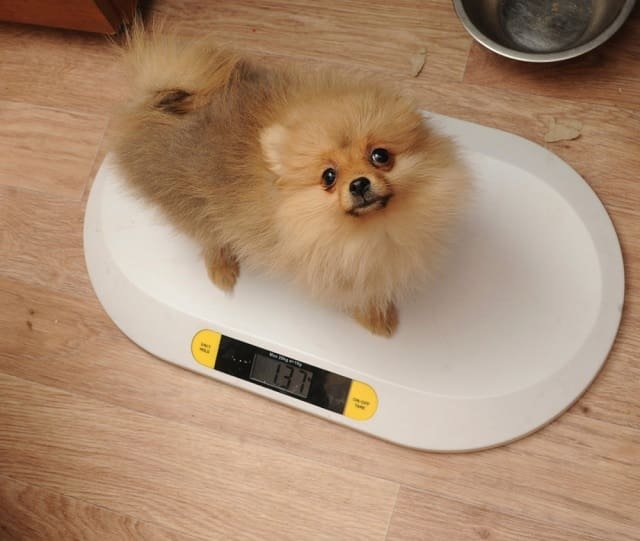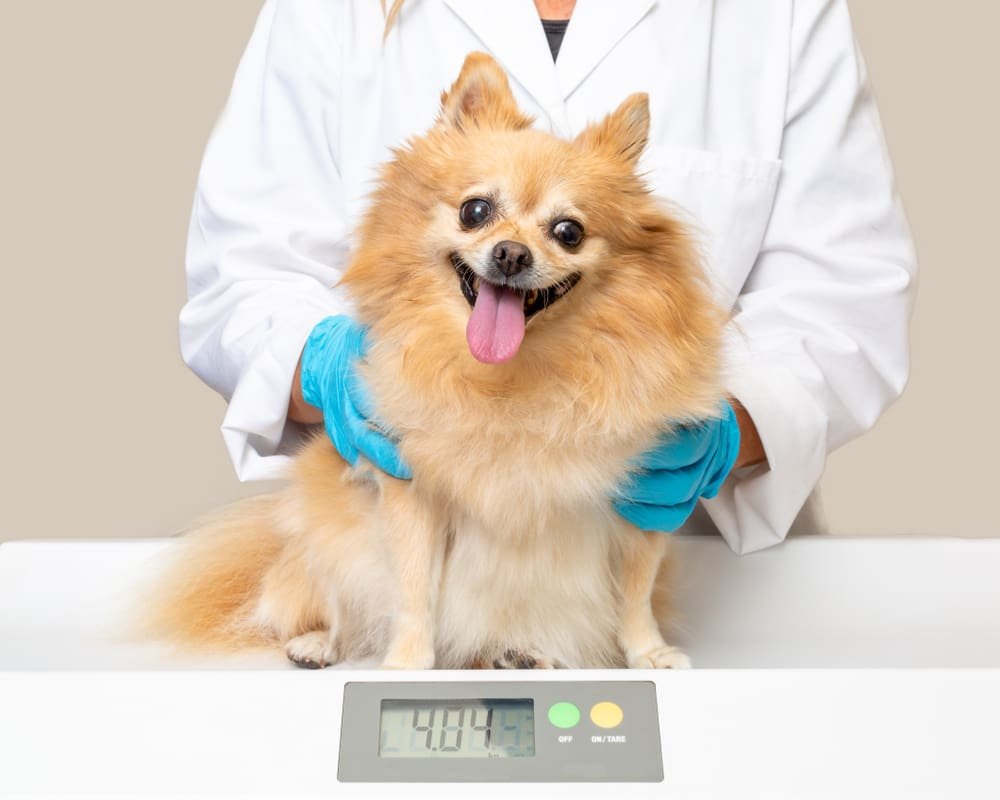Table of Contents
Welcome to the ultimate guide to Pomeranian weights! If you’ve ever wondered how much your adorable ball of fluff should weigh, you’ve come to the right place. In this comprehensive guide, we will unlock the secrets of the Pomeranian weight chart, providing you with all the information you need to ensure your Pomeranian is healthy and thriving.
Pomeranians are known for their small size and prominent personalities. With their luxurious coats and bright eyes, these little furballs make for excellent companions. But like all dogs, Pomeranians have a weight range that is considered healthy for their breed. Understanding this weight range is essential not only for their overall well-being but also for managing their diet and exercise.
Understanding Pomeranian Weight and Size
Pomeranians are a small breed, but their size can vary. On average, adult Pomeranians stand between 6 to 7 inches tall at the shoulder and weigh between 3 to 7 pounds. However, some Pomeranians can be even smaller or larger, depending on their genetics.
A Pomeranian’s size is determined by a combination of factors, including genetics, diet, exercise, and overall health. It’s important to note that while Pomeranians are small, they are still dogs and require the same level of care and attention as larger breeds.

Factors That Influence Pomeranian Weight
Several factors can influence a Pomeranian’s weight. One of the primary factors is age. Pomeranian puppies will naturally weigh less than adult Pomeranians. As they grow, their weight will increase, reaching their total weight between the ages of 9 to 12 months.
Sex can also play a role in a Pomeranian’s weight. Female Pomeranians tend to be slightly lighter than males, but the difference is usually minimal. Genetics also play a significant role in determining a Pomeranian’s weight. If both parents are small Pomeranians, likely, the offspring will also be tiny.
Another factor to consider is the Pomeranian’s overall health. Illness or underlying health conditions can impact a Pomeranian’s weight. If you notice any sudden changes in your Pomeranian’s weight, it’s essential to consult with a veterinarian to rule out any underlying health issues.
The Importance Of Maintaining a Healthy Weight For Pomeranians
Maintaining a healthy weight is crucial for Pomeranians. Obesity can lead to many health problems, including joint issues, heart disease, and diabetes. On the other hand, being underweight can also indicate underlying health issues or malnutrition.
To ensure your Pomeranian is healthy, it’s essential to monitor their weight regularly and adjust their diet and exercise as needed. The Pomeranian weight chart can serve as a helpful tool in tracking your Pomeranian’s weight and identifying any potential issues.
How To Use a Pomeranian Weight Chart
A Pomeranian weight chart is a handy tool for Pomeranian owners to track their dog’s weight and ensure it falls within a healthy range. The chart typically displays the average weight for Pomeranians at different ages and genders.
To use the Pomeranian weight chart, start by determining your Pomeranian’s age and gender. Then, locate the corresponding weight range on the chart. If your Pomeranian’s weight falls within the range, it indicates a healthy weight. If the weight is significantly above or below the range, it may be worth consulting with a veterinarian to address any potential concerns.
Average Pomeranian Weight By Age and Gender
The average weight of a Pomeranian can vary depending on their age and gender. Here is a general breakdown of the average weight range for Pomeranians at different stages of their life:
- Pomeranian puppies (up to 3 months): 0.5 to 1.5 pounds
- Pomeranian puppies (3 to 6 months): 1.5 to 3 pounds
- Pomeranian puppies (6 to 9 months): 3 to 4 pounds
- Adult female Pomeranians: 4 to 7 pounds
- Adult male Pomeranians: 5 to 7 pounds
It’s important to note that these are general guidelines, and individual Pomeranians may fall outside these ranges. Always consult with a veterinarian for specific weight recommendations for your Pomeranian.
Common Weight-Related Health Issues In Pomeranians
Maintaining a healthy weight is essential for preventing weight-related health issues in Pomeranians. Obesity can lead to joint problems such as hip dysplasia and patellar luxation. It can also increase the risk of heart disease, diabetes, and respiratory issues.
On the other hand, being underweight can be a sign of malnutrition or underlying health conditions. It’s essential to monitor your Pomeranian’s weight and consult with a veterinarian if you notice any significant changes.

Tips For Managing Your Pomeranian’s Weight
Proper weight management is key to ensuring your Pomeranian lives a long and healthy. Here are some tips to help you manage your Pomeranian’s weight:
- Monitor their food intake: Measure your Pomeranian’s food and avoid overfeeding. Stick to the recommended portion sizes for their age and weight.
- Choose high-quality food: Opt for a balanced and nutritious diet formulated explicitly for small-breed dogs. Avoid foods that are high in fillers and artificial ingredients.
- Limit treats: Treats should be given in moderation and should not make up a significant portion of your Pomeranian’s daily caloric intake. Opt for healthy, low-calorie treats.
- Provide regular exercise: Pomeranians have the energy to burn, so they get regular exercise. Daily walks, playtime, and interactive toys can help keep them active and burn off excess calories.
- Regular vet check-ups: Schedule regular vet check-ups to monitor your Pomeranian’s weight and overall health. Your vet can guide on maintaining a healthy weight and address any concerns.
Feeding Guidelines For Pomeranians
Feeding your Pomeranian a well-balanced diet is crucial for maintaining a healthy weight. Here are some general feeding guidelines for Pomeranians:
- Puppies (up to 3 months): Feed 4 to 6 small meals daily, consisting of high-quality puppy food.
- Puppies (3 to 6 months): Gradually reduce the number of meals to 3 per day.
- Puppies (6 to 9 months): Feed 2 to 3 meals daily.
- Adult Pomeranians: Feed 1 to 2 small meals daily, depending on their activity level and weight.
It’s essential to adjust the portion sizes based on your Pomeranian’s weight and activity level. Always consult with a veterinarian for personalized feeding recommendations.
Exercise Recommendations For Pomeranians
While Pomeranians are small, they still require regular exercise to maintain a healthy weight and overall well-being. Here are some exercise recommendations for Pomeranians:
- Daily walks: Take your Pomeranian for short walks at least once or twice daily. This will help burn off excess energy and keep them fit.
- Playtime: Engage in interactive play sessions with your Pomeranian, such as playing fetch or tug-of-war. This will help keep them mentally stimulated and physically active.
- Indoor activities: Consider setting up indoor activities for your Pomeranian, such as obstacle courses or puzzle toys. This can be especially helpful during inclement weather.
- Socialization: Encourage socialization by taking your Pomeranian to dog parks or arranging playdates with other friendly dogs. This will provide them with mental and physical stimulation.
Conclusion
Understanding and managing your Pomeranian’s weight is essential for their overall well-being. By utilizing the Pomeranian weight chart as a guideline, you can track your Pomeranian’s weight and address any potential concerns with the help of a veterinarian.
Remember that each Pomeranian is unique, and their weight may vary slightly from the average ranges. Regular exercise, a balanced diet, and routine vet check-ups are vital to maintaining a healthy weight for your Pomeranian.
So, embrace the journey of unlocking the ultimate Pomeranian weight chart and ensure your furry friend leads a happy and healthy life!
